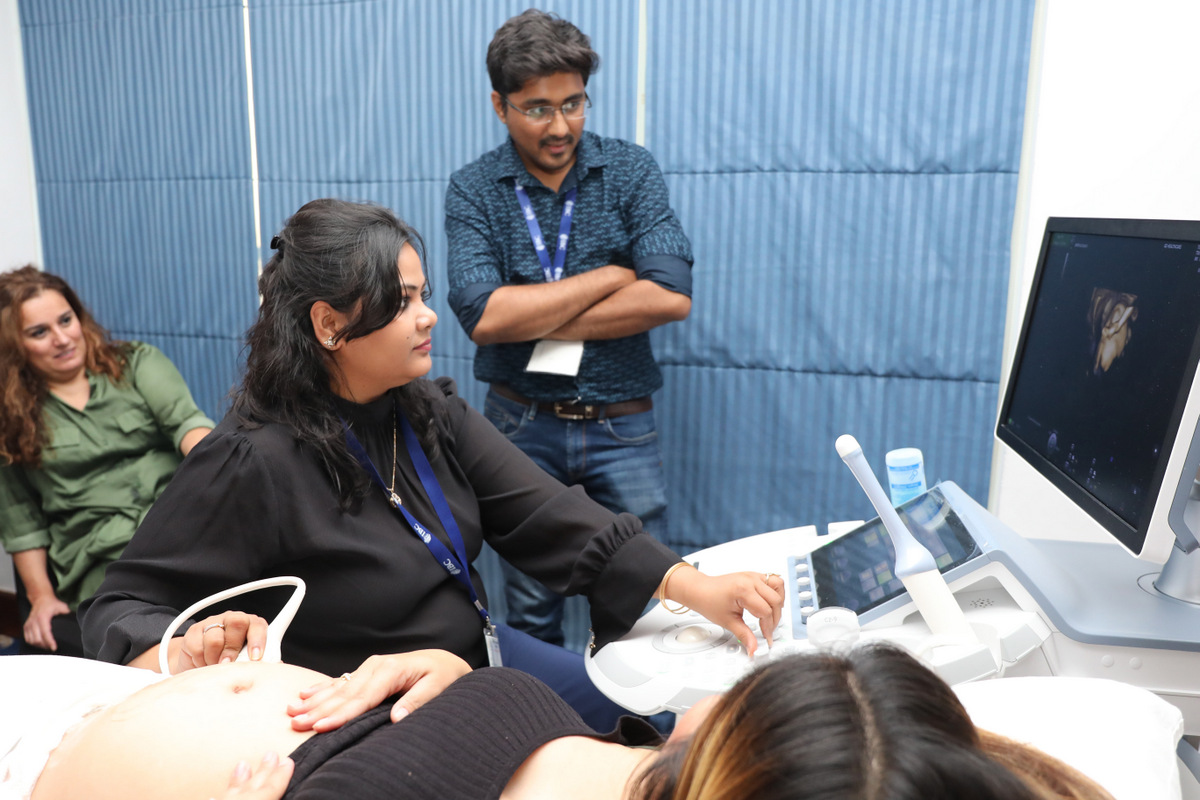Book an Appointment
Looking for the best treatments without a long waiting time?
Simply reserve a time slot, walk in at the appointed time and get prioritized treatments at no extra cost. Call Now for an appointment.
Add. : R-1, Vigyanpuri, Shadab Colony, Mahanagar, Lucknow
Book Appointment : ![]() +91 8283083082
+91 8283083082
Amniocentesis is a prenatal diagnostic test that involves obtaining a small sample of amniotic fluid for analysis. Amniotic fluid is the fluid that surrounds the developing fetus in the uterus, and contains cells that can be used for genetic testing. Amniocentesis is usually performed between 15 and 20 weeks of pregnancy.
Amniocentesis is typically performed to diagnose genetic or chromosomal abnormalities in the developing fetus, such as Down syndrome, cystic fibrosis, or Tay-Sachs disease. It can also be used to diagnose certain fetal infections.
Amniocentesis is typically performed to diagnose genetic or chromosomal abnormalities in the developing fetus, such as Down syndrome, cystic fibrosis, or Tay-Sachs disease. It can also be used to diagnose certain fetal infections.
It’s important to note that while amniocentesis is generally considered safe, there is a small risk of complications such as infection, bleeding, and miscarriage. Your healthcare provider will discuss the potential risks and benefits of the procedure with you and help you make an informed decision about whether amniocentesis is right for you.
Amniocentesis is usually performed between 15 and 20 weeks of pregnancy and involves the following steps:
Before the procedure, you may be asked to empty your bladder and change into a hospital gown. An ultrasound will be used to locate the fetus and guide the needle insertion.
A local anesthetic will be used to numb the skin on your abdomen where the needle will be inserted. You may feel some pressure or discomfort, but the procedure is generally not painful.
Using ultrasound guidance, a thin needle is inserted through your abdomen and into the amniotic sac that surrounds the fetus. A small amount of amniotic fluid is then drawn out and collected in a sterile syringe.
Amniocentesis is a medical procedure used to obtain a small sample of amniotic fluid from the sac surrounding the developing fetus. This sample can be tested to identify genetic abnormalities or other potential health issues in the fetus.
Overall, while amniocentesis is a routine procedure, it does carry some risks, and it’s essential to follow your doctor’s instructions carefully to ensure the best possible outcome for you and your baby.
While amniocentesis is generally considered a safe and routine procedure, it does carry some risks.
These risks include:
It’s essential to discuss the risks and benefits of amniocentesis with your doctor before deciding to have the procedure. Your doctor can help you understand your individual risk factors and determine if the procedure is appropriate for you.
Looking for the best treatments without a long waiting time?
Simply reserve a time slot, walk in at the appointed time and get prioritized treatments at no extra cost. Call Now for an appointment.

+91 8283083082